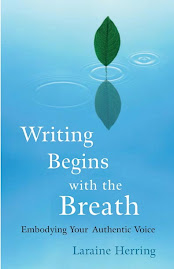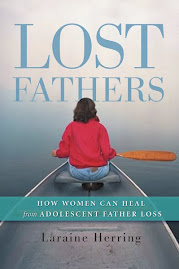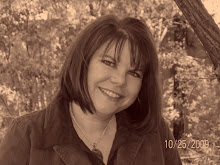I was invited to Thatcher, Arizona to conduct a workshop and reading at the local college. For the princely sum of $500, I loaded up my car with books and headed southeast for a 500 mile round trip. I knew Thatcher was rural. I knew it was a mining town. Here’s what I didn’t know:
Christ, Copper and Cattle. The hand printed sign marked the entrance to Thatcher. I’d just come through the San Carlos Apache Indian Reservation, where the odds of getting run off the road by an overloaded Ford pick up were greater than the chance of rain in March. I’d eaten lunch in Globe at an under construction Jack-in-the-Box. The screams of the mountains that had been cut and re-cut by Phelps-Dodge echoed off the empty tar shacks and singlewides with plastic windows that had littered the winding road. I’d been itching to get out of Prescott, my tiny mountain town of 20,000. I’ve been waking up to dreams of San Francisco (as I do whenever it’s been more than three months since I’ve stood on Market street waiting for a bus.) I want to see a play (besides Oklahoma). I want to go to a concert beyond the limitations of 6th grade band. I want to go to an art museum.
Thatcher is flat farmland under the gaze of the snow covered San Carlos mountains. I pass two Angus cattle farms before turning into the college. The buildings are new and beautiful – brick with huge glass windows. The grass is green. The clock tower honors the veterans of Thatcher. I enter Building 16, the Academic Building, and am faced with my own image on a flier advertising the events today. The inside of the building is carpeted (yes, a college is carpeted). It’s clean. The bathroom is immaculate. Gold-tinted fixtures. Pink, deep sinks. Soft light. A school shouldn’t be this clean, no matter how new the building is. Spooky clean.
I go to the second floor to meet S, the woman who brought me in. Her office reminds me of my own – too many books, too many posters. Her skirt is six inches above the knee on legs I immediately wanted as my own. “I get shit for this all the time,” she says. I like her right away. “You want some coffee?” I nod. “Great! I’ll have to get the coffee pot. I hide it.”
I’m introduced to M, another faculty member. She touches the sleeve of my shirt. “At least you wore long sleeves,” she says, then touches my ankles. “Possibly they’ll believe the special underwear can be concealed by your pants.” I think she’s joking. She is, sort of. She’s one of the cool ones. She’s been in trouble for teaching M. Butterfly in her literature classes.
S is quick to let me know who is OK and who isn’t. “I’m the reason they’ve got a coffee pot at all,” she says, flashing a wicked smile.
The pervasive Mormonism is beginning to sink in. I knew Thatcher was rural. I didn’t know it was Mormon-run. “You don’t know the half of it,” S tells me, and proceeds to chronicle events that rival Big Love. I’m thinking of my reading that evening. Helen, my protagonist, is standing on the edge of Golden Gate Park in 1967, realizing, after hearing the wailing of Janis Joplin, that she doesn’t need her husband, Frank, and doesn’t need the baby she’s carrying. She’s standing on the edge of Golden Gate Park realizing she doesn’t need the myth.
“It’s good for them,” S says. “Shock them out of their worldview.”
“I’m not sure about the workshop,” I say. “I’m asking people to do some woo-woo things.”
“Woo-woo is great,” she says. “Levitate and chant all hour if you want. You’ll still get paid.” I begin to see that I may be able to do what she is unable to do because of her job, her circumstances, her plans for her own future. She’s a single, smart, non-Mormon woman. She’s got to be careful.
We swallow the last of our contraband legal stimulant drink, and head to room 269. They come in wearing white pinafores. They are blonde. They are white. They are demure. The women/girls watch me and I feel like a circus performer. My nose ring feels four inches thick. I start to talk to them about yoga, careful to use only English, no Sanskrit. I ask them to focus on their breathing. Lift their shoulders to their ears. Massage their temples. Release their jaws. I talk to them about meditation. About emptying the mind before deep writing occurs. I talk to them about the importance of listening to the voice inside you, not the voice outside you. They write. Some of them refuse to do the breathing or the movement. But they all write. One exceptionally blonde girl, about 18, wearing a pink blouse and long white cotton dress, doesn’t take her eyes off me the entire ninety minutes. I worry I have a huge piece of lettuce on my front teeth.
At dinner, I realize S is a sister. She has traveled all around the world. At her house, she shows me a picture of her with an African medicine man, dripping cow’s head behind them. She has two beautiful dogs and a cat, and she loves them fully. I want to pluck S out of here and take her somewhere – anywhere. I feel her dying. I remember it in myself.
The evening reading is full with three classes that were required to be there. In the front row, however, are two lesbians. One of whom does graphic art for the college. The other is her partner, and a spitting image of k.d. lang. I will read for them. I hardly look up from the pages. I move into the novel, feeling Helen around me. I am in Golden Gate Park in 1967, and I am rejecting the myth. The front row is with me. They gasp. They laugh. They blink tears of recognition. The rest of the audience is polite (of course), but when it is over, they don’t move. The applause comes after a pregnant pause. They don’t ask questions. The two lesbians ask question after question after question, and we end up talking for an hour after the reading ends. The students hurry to leave, taking an extra cup of pink punch on the way out the door.
“Thank you for being real,” one of them says.
“I don’t know how you can do it,” the other one says. “But it’s beautiful.”
So this is why I came. This is why I traveled 500 miles for $500. Being in service to the work doesn’t always come with instructions. It doesn’t always feel like it’s the right thing to do. It doesn’t always feel like it makes a difference. But those women hugged me – real, full body hugs – after the reading, and when I got in the car with S we both knew that it mattered to them that I had come. Maybe another woman in the audience will realize that she doesn’t need a man to be complete. Maybe another woman will realize that there is more out there in the world for her than babies. Maybe a man will realize there’s more for him than Christ, Cattle, and Copper. I’ll never know. And that’s the ultimate detachment. The gifts of the work are never fully known. That’s exactly as it should be. The work isn’t mine. It belongs to something much larger than I can understand. It belongs to the earth, and maybe it’s more important to bring it to people who would never find it than to preach to the choir. I need the choir, but maybe it’s the others who need me.
The yellow haze over Mesa is a beautiful sight. I cruise into the familiarity of fluorescence and fast food, grateful for the insanity I am comfortable with. I may never return to Thatcher in this lifetime, but I am a better woman for having been.
Subscribe to:
Post Comments (Atom)











No comments:
Post a Comment